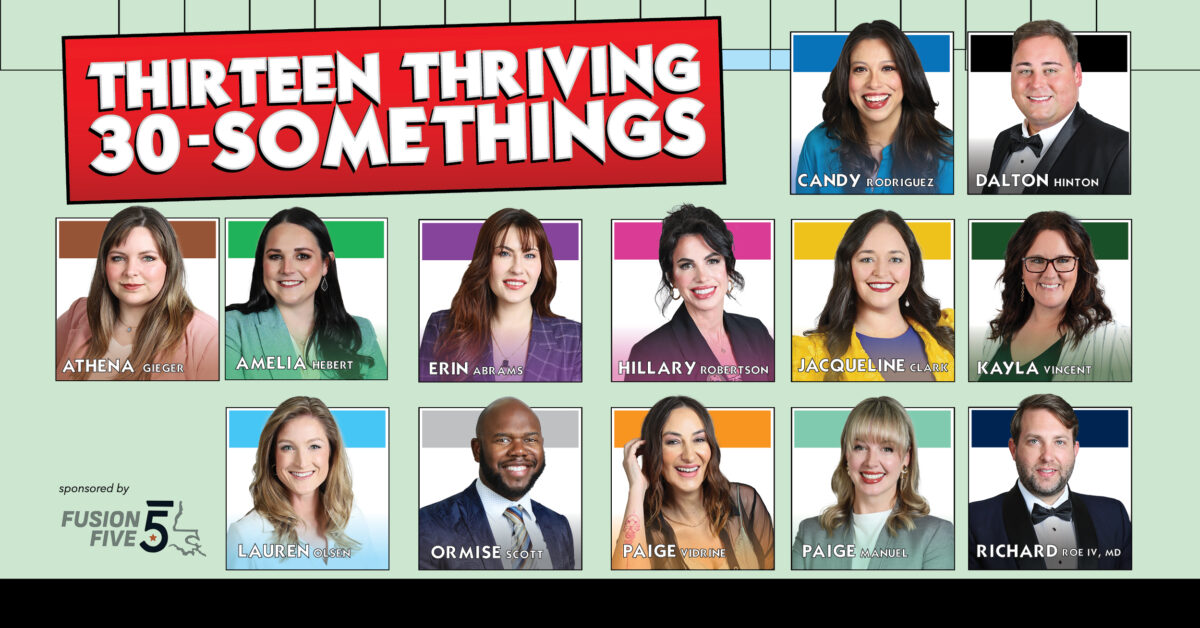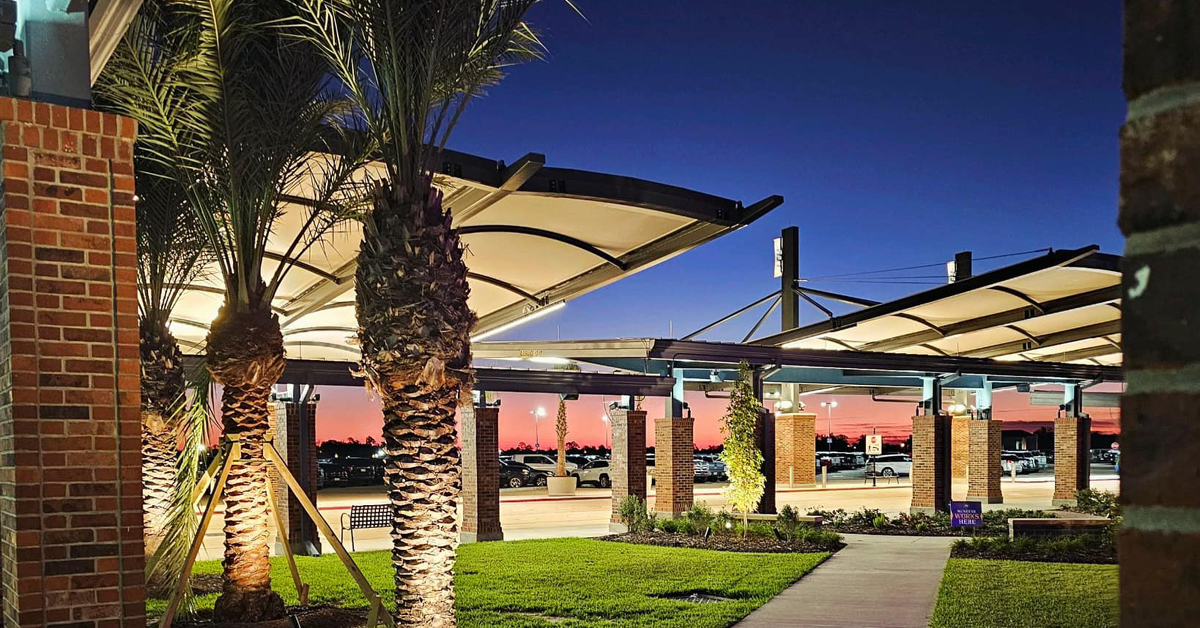
Breast Cancer Awareness Month
October 2021
LAIA Partners with Local Leaders
October 2021In our American culture, insurance is one of those facts of life, like death and taxes. We all need it, purchase it, and file the policy documents in a secure place . . . but how many of us fully understand the process? For many, insurance is a messy bureaucracy riddled with paperwork, red tape, and confusing jargon. How do I choose an insurance agent? What exactly is covered under my policy? Which options are best for me? In this special insurance section, Thrive aims to clear up a few things.
How to Choose an Insurance Agent
by Stefanie Powers
Choosing an insurance agent can be a daunting experience—especially considering the weather events we’ve gone through in the past year. What defines a good agent? What qualities should a consumer look for?
“A good insurance agent has integrity, product knowledge, empathy, a good work ethic, and honesty,” says State Farm agent Jennifer Mabou, who owns her own business in Sulphur. “Consumers should look for an insurance agent who puts the needs of his or her clients first. It’s not about selling a policy. It’s about protecting our customers. I often tell my clients that if I was just offering everyone the same policy, I wouldn’t be doing my job. There are reasons why we ask lots of questions when meeting with our clients. There are different needs for everyone and it’s our moral responsibility to make sure we are protecting the clients who trust us.”
Mabou says she was motivated to become an entrepreneur after she had her first daughter. “I loved being a mother and I enjoyed my career. I knew there was a better way to balance that lifestyle, and I felt a very strong drive from within to own my own business.”
Her goal was to create an insurance agency built on relationships and integrity. “I began working in the insurance industry at age 22 and I loved the ability to share my knowledge and engage with customers. I am very proud of the agency I’ve built and the office environment I’ve created for my team.”
Since the agent represents the company, what should the consumer look for in a company that can best handle their needs?
“When consumers are researching an insurance company, I think it’s important to review their financial standing, especially in a highly active catastrophe market,” Mabou explains. “After the 2020 storm season, there were several insurance companies that chose to non-renew their customers. There are financial reasons behind those decisions. Insurance companies must be able to manage price to risk. I truly think when it comes to a major catastrophe, your local agent is your personal advocate as it pertains to your claims experience. That is why I firmly believe in the power of doing business locally.”
Mabou says that she was able to be hands-on with her clients after Hurricane Laura. “They knew to call me anytime they felt like something wasn’t going right,” she says. “I was pro-active and advocated on their behalf to get the problems solved. We don’t hand out 800 numbers in my agency. We sit face to face with our clients and service their needs in the office. It’s truly what I love most about my job. I love interacting with people and helping them. Look for an agent that cares about YOU!”
Jennifer Mabou-State Farm Agent, 1633 Beglis Pkwy., Sulphur, LA 70663. (337) 527-0027, jennifermabou.com
Know Your Policy
A Little Time Now May Save a Lot Later
by Christine Fisher
Being insured isn’t all-inclusive in protecting you from all disasters. Insurance has changed a lot in the past 10 to 20 years. Just because you have insurance doesn’t mean you’re fully covered.
Stephen Lyons, owner of Lyons Insurance, says, “Many people think their policies from 20 years ago are the same, and they are not. Insurance has changed; understanding your current policy is critical for being certain of your insurance coverage.”
He says taking just one or two hours a year to review your policy will benefit policyholders greatly. “It’s good to know what you have, and more important to know what you don’t have or what is excluded. You may think you’re covered for certain things, but you’re not,” he says. For example, many homeowners’ policies do not automatically include loss of use, or they may have a different deductible for wind damage or named storm damage.
“In the last 16 years, since Hurricanes Rita and Katrina, the insurance landscape in South Louisiana has changed drastically as far as the carriers are concerned,” Lyons explains. “Insurance companies who are willing to write policies are becoming less generous when it comes to including coverages that previously were automatic.”
During your review process, make a list of your contents. “Businesses and individuals generally come out ahead if they are able to submit a list of contents; it is well worth the time it takes to create this list. Once you have it, just review it annually and update as needed,” Lyons says. “The more accurate the list, the more money you will collect in general. Taking pictures of your contents to accompany the list is also recommended.”
If you should have to make a claim, it helps to know what is expected. “This also has changed quite a bit in the last several years,” Lyons says. “Years ago, many agents like me had draft authority, or the ability to help the insured at claim time, and in some cases, make the payment. Now, the insurance companies do not want the agent involved in any of the claim’s process. It is between the insured and the adjustor.”
If your home receives damage, whether from a lightning strike, a storm, or a hurricane, most insurance companies expect the homeowner to make all necessary repairs to prevent further damage until an adjuster can arrive to review the situation. This process often requires the policyholder to spend money before they see an adjustor.
When repairs are needed, Lyons says it is helpful to use a local contractor, if possible. “If you need them to return for additional damage, you know who to call, and if your insurance company has a question about the cost, you are able to reach your local contractor for clarification,” he says. “It may take a little longer to wait for a local contractor to get to you, but it’s usually worth it.”
When you just don’t have the time to devote to your claim, Lyons suggests hiring a public adjustor, one that works for you, not the insurance company. “They will start from scratch and value the claim and deal with your insurance company on your behalf. They are licensed by the state and can charge no more than 10 percent of what they collect on your behalf,” he explains.
Many people are surprised to learn that their insurance agent really can’t get in the middle of a claim. The adjustor is the individual to work with during a claim. “Be sure to keep the phone number of your adjustor. In some cases, during catastrophic events, you may go through several adjustors, as many of us experienced during recent hurricanes. Keep track of their phone number because they are the ones who are responsible for moving your claim forward,” Lyons says.
Insurance can get complicated, but Lyons says if you start with understanding your policy and then knowing how the insurance companies work, it can help you navigate the system. “As an agent, even though there are restrictions on what I am allowed to do, I am always ready and available to help my clients through the process,” Lyons says.
Lyons Insurance is locally owned and has serviced clients for over 60 years. For more information, call (337) 478-4466 or visit www.lyonsagency.com.
Understanding Your Car Insurance Policy
If you’re buying a new car or shopping for auto insurance, you’ll likely need to understand the common types of coverage available on a car insurance policy. “The various types of car insurance coverage are available to help protect you, your passengers, and your vehicle if you’re involved in a car accident,” says Allstate agent Tuwanna Guillory-August.
Below is a list of common car insurance coverage options with brief explanations. Depending on where you live, some of these coverages are mandatory and some are optional. Understanding what’s required in our state and what each option cover can help you choose the right coverage for your situation.
LIABILITY COVERAGE
Auto liability coverage is mandatory in most states, including Louisiana. Drivers are legally required to purchase at least the minimum amount of liability coverage set by state law.
Liability coverage has two components:
Bodily injury liability may help pay for costs related to another person›s injuries if you cause an accident.
Property damage liability may help pay for damage you cause to another person’s property while driving.
UNINSURED AND UNDERINSURED MOTORIST COVERAGE
If you’re hit by a driver who doesn’t have insurance, uninsured motorist coverage may help pay for your medical bills or, in some states, repairs to your vehicle. If you’re hit by an underinsured driver, that means they have car insurance, but their liability limits aren’t enough to cover your resulting medical bills. That’s where underinsured motorist coverage may help. Uninsured and underinsured motorist coverage is optional in Louisiana.
COMPREHENSIVE COVERAGE
Comprehensive may help cover damage to your car from things like flood waters, hurricane wind damage, theft, fire, or hail. If your car is damaged by a covered peril, comprehensive coverage may help pay to repair or replace your vehicle (up to the vehicle’s actual cash value). This coverage has a deductible, which is the amount you’ll pay out of pocket before your insurer reimburses you for a covered claim. Comprehensive is typically an optional coverage — but your lender may require it if you’re leasing or paying off your vehicle.
COLLISION COVERAGE
If you’re involved in an accident with another vehicle, or if you hit an object such as a fence, collision coverage may help pay to repair or replace your car (up to its actual cash value and minus your deductible). Collision coverage is typically optional. It may be required, however, by your vehicle’s leaseholder or lender.
MEDICAL PAYMENTS COVERAGE
If you, your passengers or family members who are driving the insured vehicle are injured in an accident, medical payments coverage may help pay for costs associated with the injuries. Covered costs may include hospital visits, surgery, X-rays and more. Medical payments coverage is optional in Louisiana.
OTHER TYPES OF AUTO INSURANCE COVERAGE
You may be able to add the following optional coverages to your car insurance policy, depending on your situation. As your insurance agent, we can help you understand what each help cover, so you can put together a policy that’s right for you.
Rental reimbursement coverage/transportation expense coverage
Towing and labor cost coverage
The different components of an auto insurance policy are available to help protect you and your vehicle. For more information, call The Guillory-August Allstate Agency office at 337-508-3036.






